Ever wonder why you feel sleepy after a big meal? It's not just because you're full. Some foods help your brain get ready for sleep — they have stuff like serotonin and melatonin, which are like nature's lullabies.
Serotonin is a neurotransmitter that helps regulate your mood and is crucial in preparing your body for sleep. With enough serotonin, it turns into melatonin, the "sleep hormone" in your brain. The more melatonin your body produces, the sleepier you'll feel.
So, by eating foods that are high in these sleep-promoting chemicals, you're essentially giving your body a natural sleep aid. Let's look at some of the foods you should be putting on your plate so you can snooze away!
1. Kiwis
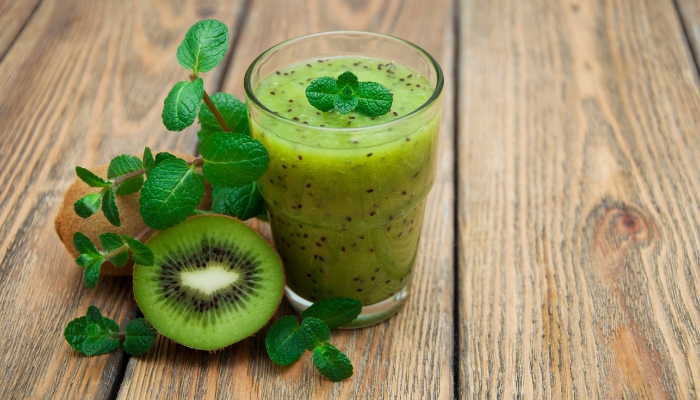
Kiwis are more than just a tasty fruit — they're a sleep superfood. Packed with nutrients like vitamin C, potassium, and antioxidants, they're great for your overall health. They're rich in serotonin, which helps produce more melatonin, so you're more likely to feel sleepier when bedtime rolls around. And they also contain antioxidants, which help your body fight off damage from harmful molecules and help your body relax and prepare for sleep.
So, why not add a kiwi or two to your evening snack routine?
Did You Know? Some studies even suggest kiwis could help people with sleep disorders get a better night's rest.
2. Nuts and Seeds
If you're nuts about sleep (see what we did there?), you're in luck. Nuts and seeds are a great addition to your diet if you want to improve your sleep quality.
- Walnuts are a great source of melatonin and omega-3 fatty acids, which can help reduce inflammation and promote better sleep.
- Pistachios contain some of the highest melatonin levels of any nut, but more research is needed to see their full effect on sleep.
- Almonds are rich in magnesium, a mineral linked to better sleep, especially for those with insomnia. They also contain melatonin, helping to regulate your sleep cycle.
- Pumpkin Seeds are packed with magnesium and tryptophan. Tryptophan is an amino acid that your body converts into serotonin and melatonin, helping you sleep.
As you can see, certain nuts can help you fight insomnia, so consider adding a handful of these nuts or seeds to your diet for a sleep-friendly snack.
3. Fatty Fish
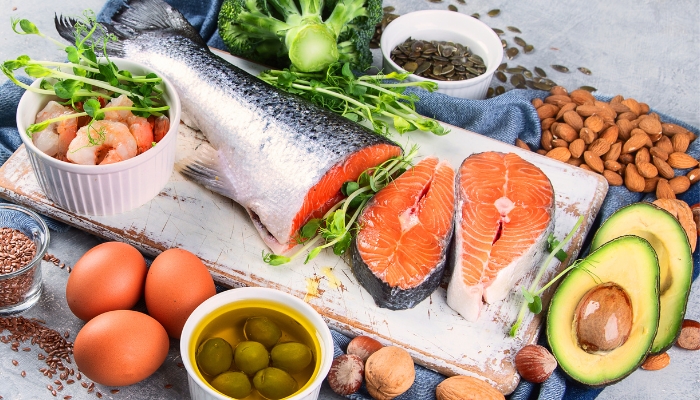
If you're a seafood lover, you're in luck. Fatty fish like salmon, mackerel, and tuna are not only delicious; they're also great for helping you sleep better. These types of fish are rich in protein and provide essential nutrients like iron, zinc, and vitamin B12.
Fatty fish also has high omega-3 fatty acids and vitamin D levels, which help regulate serotonin, the brain chemical key to establishing your sleep-wake cycle. So, by incorporating fatty fish into your meals, you're treating your taste buds and setting the stage for a good night's sleep.
4. Milk and Soymilk
Ever wondered why a warm glass of milk is a bedtime classic? It's because milk contains tryptophan and milk peptides that help relieve stress and enhance sleep. But don't worry; for those who are non-lactose, soymilk is also beneficial for sleep because it's rich in magnesium, vitamin A, and calcium, which all affect the hormones for sleep.
5. Yogurt
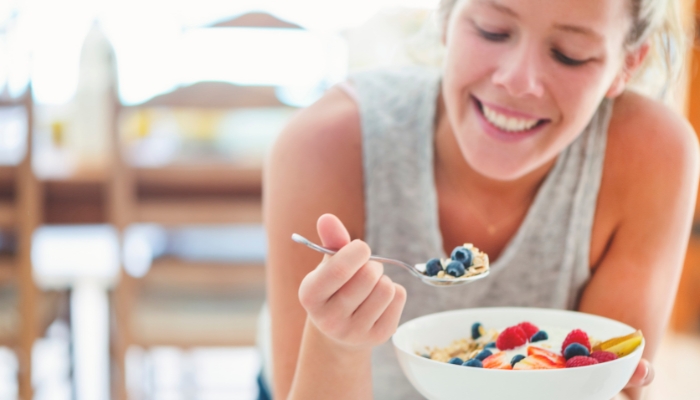
Did you know your gut health can affect your sleep? It's true! The bacteria in your gut, known as the microbiome, can influence your sleep patterns. Yogurt, especially those rich in probiotics, can help keep your gut healthy and your sleep schedule regular. So, consider adding a serving of yogurt to your diet a few times a week. It's a simple and tasty way to improve your sleep potentially.
6. Whole Grains
It turns out that whole grains like oatmeal, brown rice, and quinoa aren't just good for your heart; they're also great for your sleep. These grains stimulate insulin production, which helps your brain process tryptophan, a sleep-promoting amino acid.
Brown rice also contains GABA, gamma-aminobutyric acid, which helps calm the nervous system so you can sleep.
Did You Know? Rice, barley, and oats are all natural sources of melatonin too!
7. Leafy Greens
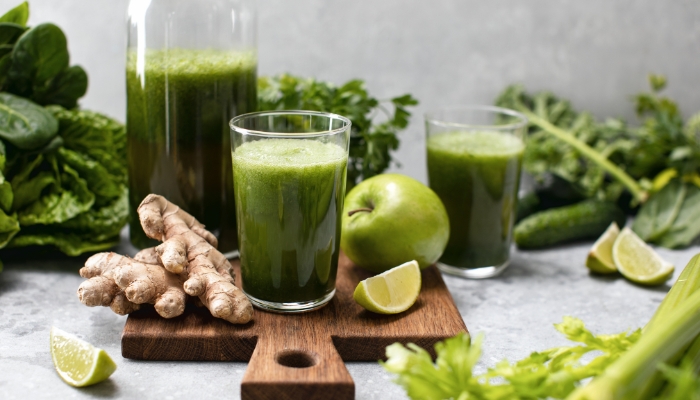
Spinach and kale might be known for their role in healthy diets, but did you know they're also stars in the sleep world? These greens are packed with magnesium, calcium, and antioxidants, all essential for a healthy sleep cycle.
A lack of magnesium is even linked to insomnia. So, if you're aiming for better sleep, don't forget to add a serving of leafy greens to your dinner plate.
Foods to Avoid for Better Sleep
While we've talked a lot about foods that can help you sleep, knowing which ones might keep you up at night is important. Foods high in sugar, caffeine, and spicy food (like with chili peppers) can interfere with your sleep. So, avoid these foods in the hours leading up to bedtime for a better night's rest.
Other Nutrition Tips for Better Sleep
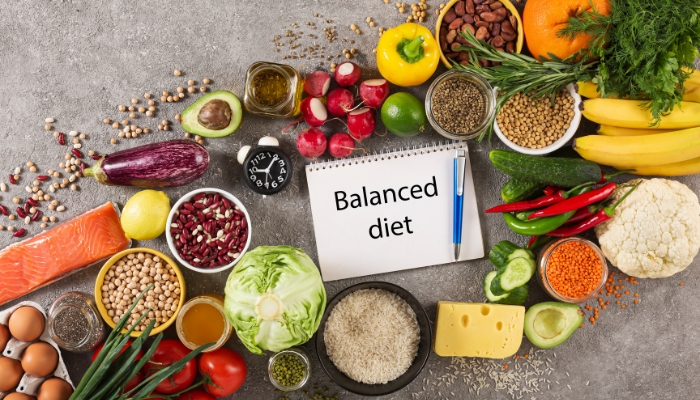
Beyond the specific foods you eat, how and when you eat can also impact your sleep. So, try to remember the following:
- Avoid Large Meals Before Bed: Eating a big meal can lead to discomfort and indigestion, making it harder to fall asleep. Try to finish eating at least a few hours before going to bed.
- Foods to Avoid: Foods high in sugar, caffeine, and certain spices can interfere with your sleep.
- Balanced Diet: Eating various foods ensures you get a wide range of nutrients, many of which can contribute to better sleep.
Good nutrition is just one piece of the sleep puzzle; you also need to balance other aspects of your life with it too. Regular exercise, a consistent sleep schedule, and a comfortable sleep environment are also important.
Eat Your Way to Better Sleep
And there you have it, folks! From kiwis to kale, there's a whole menu of foods that can help you get a better night's sleep. But if your diet isn't the issue and you still can't sleep, your mattress might be to blame. So, if you're ready to upgrade, our mattress selection at Hudson Appliance has the brands and types you need to fall into dreamland!
Have any questions? Give us a call or stop by — we'll help you find the best mattress solution in no time!